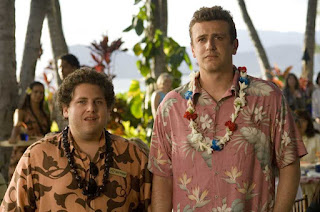Food And Life
My sister and I had dinner with our high school librarian this evening ... It was great getting caught up with her! I worked with this woman for 1-1/2 of my 4 high school years. She's a particularly interesting lady, and a lot of fun to talk to. I haven't seen her for about two years, so there was plenty of catching up to do, too.
But to be honest, that's not what I'm thinking about as I type. I just read an article on Yahoo! News about the possibility of considerably longer lifespans. Not just longer, either -- the possibility of indefinite lifespans.
The line about doubling a person's life is even more alarming, at least with my family's history. My sister and I joke that, what with modern medicine, we'll live forever anyway; our family members are genetic mutants that tend to live into the triple digits. For instance, I had a great-great-grandmother that turned 100 in 1976. She died six years later. We had another relative that turned 100 in the TWENTIES. The possibility of a doubled lifespan? I'd have almost 90 years left in 2100. That thought frightens me.
Granted, they're talking of doubling the average lifespan, so they're thinking more along the 140-year mark. Still extremely long.
What about marriage? If you get married in your 20s, that could mean being married to someone for 120 years. People have issues making it beyond 15 years -- 120??!! While a lot of people might just plan on marrying multiple times (not the greatest plan, in my view), there might be others that just put off marriage for longer. What if longer life doesn't necessarily mean being capable of having kids later? The article suggests it would, but that's not exactly testable -- how many 140-year-old people do you know? If you still can't really have kids beyond your 30s, but people don't marry until they're in their 40s ... I foresee a problem.
To be honest, the article just made me tired. I'm not enthralled with the idea of living forever. I'm not particularly excited at the idea of looking young until I'm 80, either (easy to say, since I'm only 22). As far as I can tell, there are definite advantages to each stage of life, including the freedom when you're young, the independence when you're middle-aged, the grandchildren when you're older ... I'm looking forward to future stages. But I'm not sure I want to be around when 2100 rolls around; the world is headed in some scary directions. Some exciting as well, but ...
I just read The Giver, which doesn't help things. That's an extreme view on the future -- a totalitarian society where all choice is taken away. The unsettling part? No one realizes what they're missing. The main character -- he is given the opportunity to see the consequences of the decision to go to Sameness, to remove choice -- even laughs at the prospect of people picking their own spouses and jobs. After all, what if they chose wrongly?
But I digress. While the story makes me think twice about the future of the world (ew, Sameness?), the way the Old (as they refer to them) are treated is almost equally unsettling. They are all gathered together, removed from their families, similar to today's nursing homes. They have outlived their usefulness to the community and live out their days here. However, they don't see an issue with it. Furthermore, when they reach a certain age, they are "released" -- sent to Elsewhere. If you've read it, you understand what this means. If not -- well, I won't ruin it, if only because I think everybody beyond the age of 13 should read this book.
At what point would we outlive our usefulness? Sure, we'd work longer, but let's say people started retiring at 95. They'd still have, on average, 45 years to ... well, do whatever you'd do when you were retired and over 100. Social security wouldn't survive past one generation (assuming, of course, that it would survive that long in the first place). Would we have to rethink things? Would we start to see controlled populations? Would there suddenly be an upper limit to lifespans, as set by the government?
An extreme view, but still something to think about.
The biblical perspective on this seems fairly cut and dried. Post-flood, we see God set a limit to how long people should live; He's always managed to find ways to keep people within this limit. There have been no Methuselahs since, well, Methuselah. While I don't think God is a vengeful, mean dude (hmm, I just called God a dude ... that doesn't feel right, either), I don't think He'd be thrilled with our trying to live forever, either. It hasn't worked in the past; I'm not sure our modern technology is guaranteed to work, either. Who knows what waits for us at those ages.
The article points out that there would likely be some severe consequences (which I liked, given my skepticism); our societies, our family structures, and our governments would all have to change drastically to accomodate. Longer lives would put a different strain on food supplies, workplaces, and government support. I recommend reading the article for the whole effect.
Okay. Enough from me. Any thoughts out there?
But to be honest, that's not what I'm thinking about as I type. I just read an article on Yahoo! News about the possibility of considerably longer lifespans. Not just longer, either -- the possibility of indefinite lifespans.
The line about doubling a person's life is even more alarming, at least with my family's history. My sister and I joke that, what with modern medicine, we'll live forever anyway; our family members are genetic mutants that tend to live into the triple digits. For instance, I had a great-great-grandmother that turned 100 in 1976. She died six years later. We had another relative that turned 100 in the TWENTIES. The possibility of a doubled lifespan? I'd have almost 90 years left in 2100. That thought frightens me.
Granted, they're talking of doubling the average lifespan, so they're thinking more along the 140-year mark. Still extremely long.
What about marriage? If you get married in your 20s, that could mean being married to someone for 120 years. People have issues making it beyond 15 years -- 120??!! While a lot of people might just plan on marrying multiple times (not the greatest plan, in my view), there might be others that just put off marriage for longer. What if longer life doesn't necessarily mean being capable of having kids later? The article suggests it would, but that's not exactly testable -- how many 140-year-old people do you know? If you still can't really have kids beyond your 30s, but people don't marry until they're in their 40s ... I foresee a problem.
To be honest, the article just made me tired. I'm not enthralled with the idea of living forever. I'm not particularly excited at the idea of looking young until I'm 80, either (easy to say, since I'm only 22). As far as I can tell, there are definite advantages to each stage of life, including the freedom when you're young, the independence when you're middle-aged, the grandchildren when you're older ... I'm looking forward to future stages. But I'm not sure I want to be around when 2100 rolls around; the world is headed in some scary directions. Some exciting as well, but ...
I just read The Giver, which doesn't help things. That's an extreme view on the future -- a totalitarian society where all choice is taken away. The unsettling part? No one realizes what they're missing. The main character -- he is given the opportunity to see the consequences of the decision to go to Sameness, to remove choice -- even laughs at the prospect of people picking their own spouses and jobs. After all, what if they chose wrongly?
But I digress. While the story makes me think twice about the future of the world (ew, Sameness?), the way the Old (as they refer to them) are treated is almost equally unsettling. They are all gathered together, removed from their families, similar to today's nursing homes. They have outlived their usefulness to the community and live out their days here. However, they don't see an issue with it. Furthermore, when they reach a certain age, they are "released" -- sent to Elsewhere. If you've read it, you understand what this means. If not -- well, I won't ruin it, if only because I think everybody beyond the age of 13 should read this book.
At what point would we outlive our usefulness? Sure, we'd work longer, but let's say people started retiring at 95. They'd still have, on average, 45 years to ... well, do whatever you'd do when you were retired and over 100. Social security wouldn't survive past one generation (assuming, of course, that it would survive that long in the first place). Would we have to rethink things? Would we start to see controlled populations? Would there suddenly be an upper limit to lifespans, as set by the government?
An extreme view, but still something to think about.
The biblical perspective on this seems fairly cut and dried. Post-flood, we see God set a limit to how long people should live; He's always managed to find ways to keep people within this limit. There have been no Methuselahs since, well, Methuselah. While I don't think God is a vengeful, mean dude (hmm, I just called God a dude ... that doesn't feel right, either), I don't think He'd be thrilled with our trying to live forever, either. It hasn't worked in the past; I'm not sure our modern technology is guaranteed to work, either. Who knows what waits for us at those ages.
The article points out that there would likely be some severe consequences (which I liked, given my skepticism); our societies, our family structures, and our governments would all have to change drastically to accomodate. Longer lives would put a different strain on food supplies, workplaces, and government support. I recommend reading the article for the whole effect.
Okay. Enough from me. Any thoughts out there?


Comments